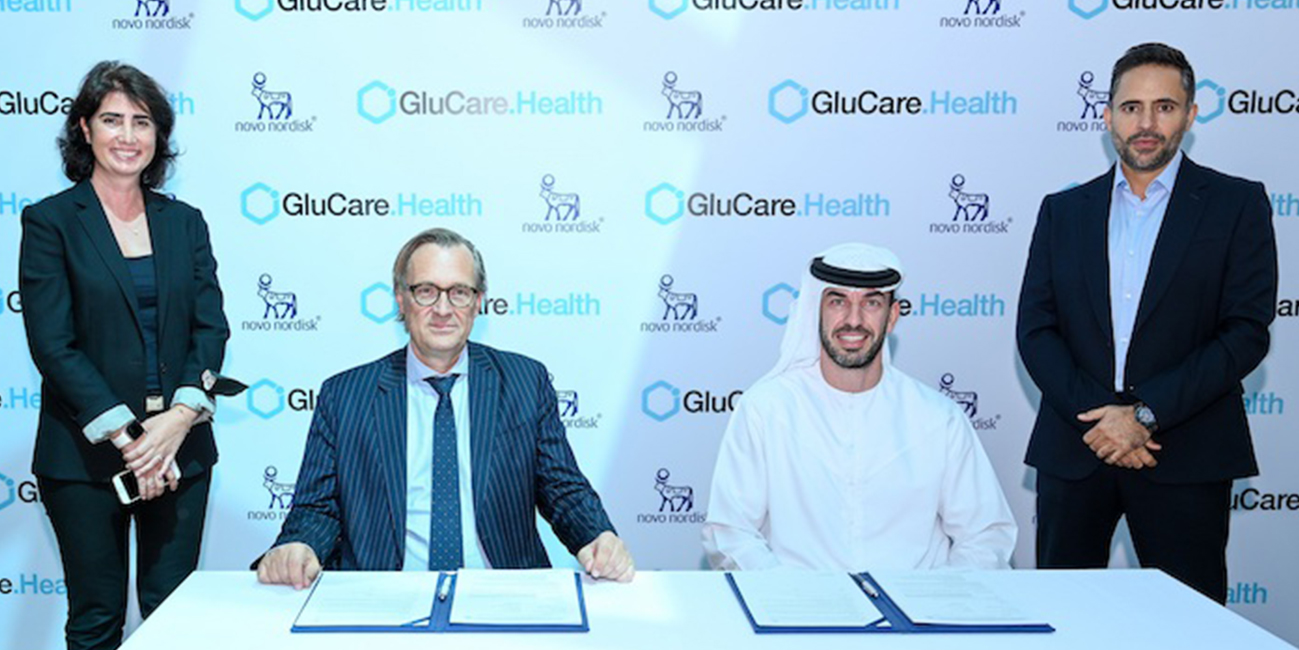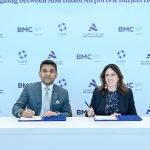A Dubai-based healthtech startup has partnered with Novo Nordisk to launch what is considered one of the first value-based reimbursement model trials in the Middle East and North Africa (MENA).
GluCare.Health – named amongst the 50 most-funded startups in the region by Forbes Middle East at $20 million – and the Danish multinational pharmaceutical company will kick off their partnership with a 150-patient weight management pilot program in the United Arab Emirates (UAE).
Set to begin in September 2022, the aim of the trial is to study the treatment outcomes of hands-on patient care and data-driven remote care, compared to traditional models practiced in the country.
Integrating newer digital biomarkers with existing therapeutics, GluCare.Health’s six-month program will reportedly involve a multidisciplinary clinical team, comprising a health coach, nutritionist, nurse or patient educator, and endocrinologist. The startup’s wearables and remote continuous data monitoring will form the digital aspect.
“Novo Nordisk UAE will be providing the pharmacological component of the weight management program, putting their portion of the cost of the project at risk, meaning they will pay back – along with GluCare.Health – the cost of the program to the patient if the key performance indicators of weight reduction are not met,” Ihsan Almarzooqi, co-founder and managing director of GluCare.Health told Healthcare IT News. “This type of rebate is not typical in the pharma industry, and it’s a novel approach for Novo Nordisk UAE. Through this partnership, Novo Nordisk is both validating the program as well as participating in the value-based approach for healthcare that we have long advocated for.”
Subject to minimum requirements “in terms of engagement and adherence to protocols that the patient must follow,” GluCare.Health and Novo Nordisk will cover all or a portion of the cost of care, should a participant not lose at least 10% of their body weight by the end of the trial.
According to the company, the pilot program could be “adopted widely to potentially save the UAE economy up to $3.6 billion per year.”
Ali Hashemi, co-founder and chairman of GluCare.Health, elaborated: “Obesity management is not typically paid for by insurance companies in the UAE, but the severe comorbidities that are related to or caused by obesity are a huge burden. These include sleep apnoea, diabetes, cardiovascular disease, cancer, pre-diabetes, osteoarthritis, among others.”
He continued: “These downstream conditions add up to the estimated cost of $3.6 billion per year in the UAE alone, and the risk ultimately rests on employers and society. If obesity itself was considered a disease, and if its treatment was mainstream and routinely paid for, the reduction in weight would have a large waterfall effect on the downstream costs of the healthcare system.”
Almarzooqi added: “We expect Novo Nordisk UAE will benefit from enhanced outcomes from the use of its innovative therapeutics. GluCare.Health will report and publish the outcomes of this study when completed. They will also benefit from new data that we use as part of our continuous care model, such as the digital biomarkers and engagement data that our proprietary platform captures.
“Typical obesity programs and existing literature do not contain this type of ‘hyper-personalized, continuous’ information. These new data sets will be in addition to routine data sets such as laboratory and in-clinic results. The combination of both sets, along with the ‘at-risk payment model’ can provide a blueprint of how future obesity programs are adopted and paid for more widely by payers.”
“Obesity is a complex serious chronic disease associated with many other health conditions, including type 2 diabetes, cardiovascular diseases, and certain types of cancers,” said Mads Bo Larsen, vice president and general manager of Novo Nordisk in the UAE. “Over the last 30 years, the prevalence of obesity in the UAE has nearly tripled and this trend threatens healthcare systems, economies, and individual lives.
“It is well-documented that obesity management requires a holistic approach and a comprehensive solution, and we strongly believe that combining technology with traditional therapeutics will enhance treatment outcomes.”
Hashemi added: “Part of the challenge in doing a transformational weight loss programme, driven by cutting-edge therapeutics like Novo Nordisk’s, are two things. One, the cost of therapeutics can be prohibitively high, and two, for a certain portion of patients their metabolic systems simply won’t respond.
“Faced with these odds, it can sometimes be hard for patients to make the significant commitment to spend on these therapeutics and services. Providing an outcome-based mechanism to essentially underwrite that risk for patients helps lower the hurdle for adoption and lets patients know that if they pay for it, it will work.”
He concluded: “This is not dissimilar from other ‘guaranteed or your money back’ models that consumers are already accustomed to when it comes to buying goods and services. It just hasn’t been employed widely in healthcare because providers and drug companies haven’t been willing to put themselves at risk in this way.”














